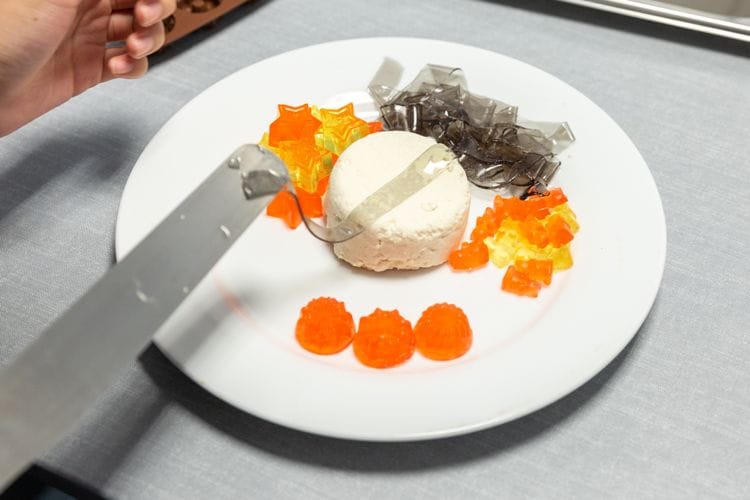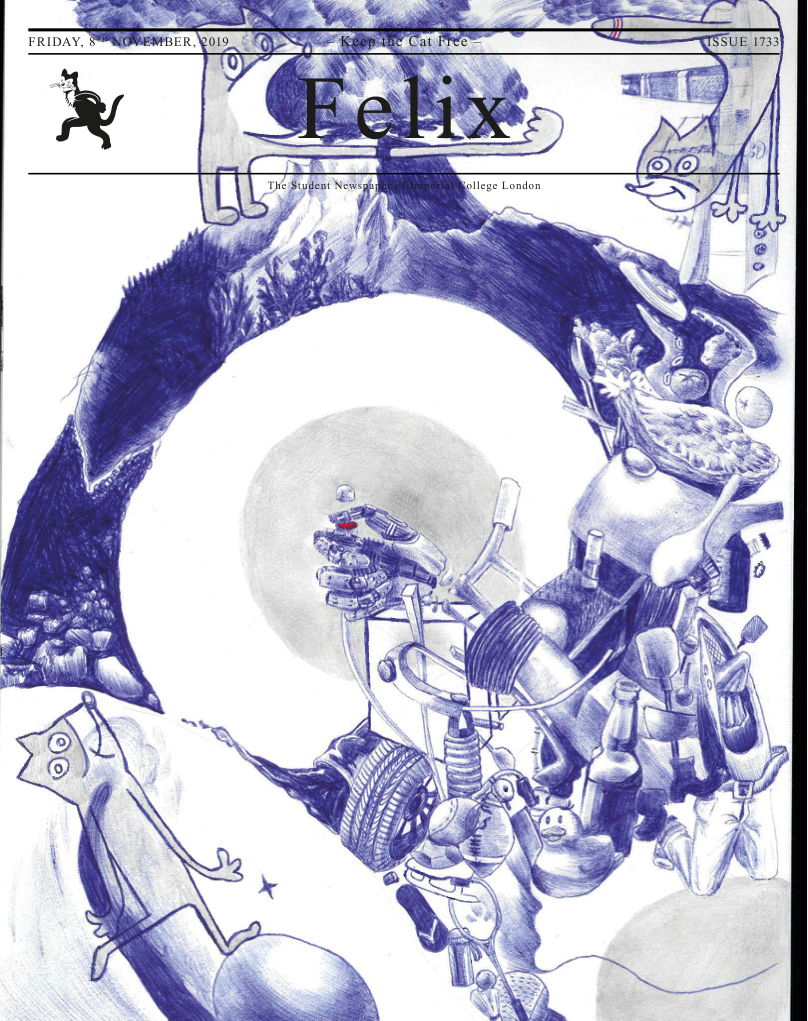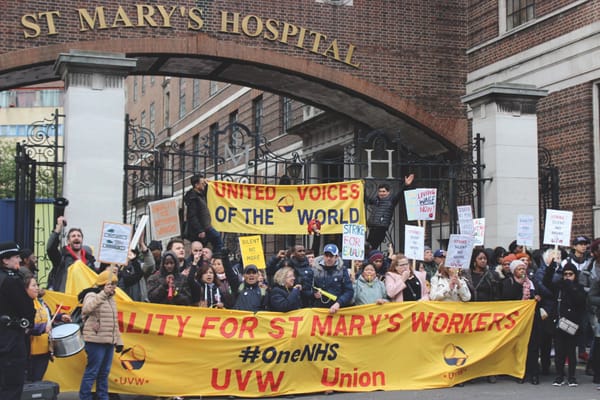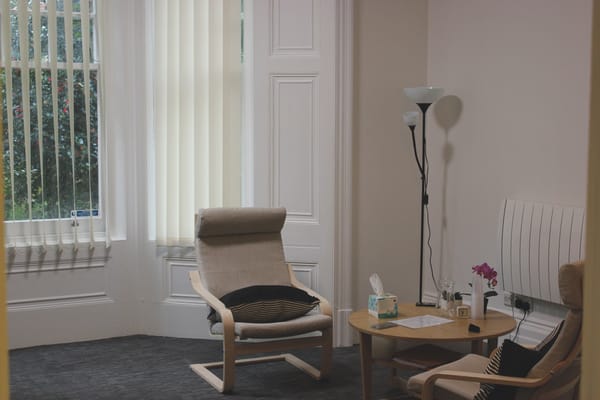Chemical Kitchen: Leading the Charge on Innovation
First year Chemistry students have been introduced to laboratory work this year via an unexpected medium: cooking and the kitchen

Chemical Kitchen, a new course rolled out within the Department of Chemistry, aims to introduce students to laboratory skills and practical experience via a more approachable and unconventional method. In groups of fifteen at a time, students spend three hours a day for three days in a newly renovated kitchen space in the Sir Ernst Chain Building, working on lab skills in a relaxed atmosphere, wearing aprons instead of lab coats, and working with food instead of synthetic chemicals.
In assigned groups of three, students follow a simple protocol to make cheese or tofu using coagulating agents and filtration on the first day, design an experiment to find the optimal method and temperature needed to cook egg yolks in a specific way on the second day, and on the last day make a plated dish using molecular gastronomy ingredients such as xanthan gum and alginate to create garnishes. Throughout the process they practice skills such as measuring and recording observations or calculating yields, use chemical glassware and apparatus, and learn molecular gastronomy techniques like spherification. But they also have the chance to funnel creativity into the dish they choose to create on the last day, so that no two groups end up with identical plates.
“Whether you want to be a chemist or a chef, skills such as meticulous planning and detailed observation and recording are vital,” said Alan Spivey, Assistant Provost (Learning & Teaching). This was the key inspiration for the course: taking advantage of the overlapping skills between working in a kitchen and a laboratory to teach students the soft skills involved in chemistry.
Students coming into Imperial have varying levels of lab experience and confidence in lab work. Chemical Kitchen aims to level the playing field by providing an opportunity for all students to familiarise themselves with the ‘thinking and doing’ involved in experiments, under the guise of a kitchen environment. The focus isn’t about the exact technical skills involved, but rather students’ deeper appreciation of why things are done the way they are done. In this unpressured environment, students come to understand why their workspace in labs should be kept tidy, how to take lab notes throughout the experiment and what to record, why instructions should be followed closely, how to manage their time, and more. With food, there is an immediate visible impact of their actions on the results.
Chemical Kitchen isn’t just a standalone part of the course. The skills taught are relevant to the chemistry education the department wants to deliver, in that the experience of creating something in the kitchen bears resemblance to the synthetic chemistry labs students will eventually do. Accordingly, the three days spent at Chemical Kitchen are followed by two days of the very first synthetic chemistry labs for Y1 students. Whilst students receive feedback on the lab notes the produce during Chemical Kitchen, their first summative assessment on lab notes will be from the synthetic chemistry labs that follow. This is an approach embraced during the chemistry curriculum review – that students should receive feedback on a task before being assessed on it.
Recrystallisation using a Buchner funnel is one such technique that students will come across multiple times in synthetic chemistry labs, but may have their first encounter with through Chemical Kitchen.
The idea for the course was born out of the recognition that the skills an undergraduate chemist should have overlap with the skills a chef may have. One of the people who recognised this was Jozef Youssef, Chef Patron and founder of Kitchen Theory, a multisensory design studio which (among other activities) investigates how our senses detect factors like colour and symmetry to influence our enjoyment of food. He helped to develop the recipes used in the lab. From Imperial, Professor Roger Kneebone from the Imperial College Centre for Engagement and Simulation Science, Assistant Provost Professor Alan Spivey, Teaching Fellow Dr Luke Delmas, and Culinary Education Designer Dr Jakub Radzikowski helped to push through the course’s implementation under the umbrella of the curriculum review.

In particular, Luke and Jakub spent the summer carefully designing the activities such that they successfully deliver the learning outcomes they had in mind: for students to practice meticulous techniques, plan and perform simple experiments, and more. As they explain it, “it’s the same chemistry skills but putting a different kind of face on it – so they don’t feel like they have to be experts. A student may be happy saying ‘I’m not good at cooking’, but saying ‘I’m not good at chemistry’ probably leaves them feeling more vulnerable. Chemical Kitchen is serious but not serious chemistry, so we think that students would feel more comfortable and confident.”
They said that the initially zany-seeming idea was met at first with positivity from students, but a more mixed response from staff.
“Many were kind of dismissive,” said Jakub, “but I don’t see why. It’s on a small scale right now, and if there is a chance that it will improve the student experience and make them better scientists, I think it’s worth trying.”
Luke explained that it’s because introducing new methods can seem like an implied criticism of old styles, though once exposed to innovation many staff change their minds – a sentiment that Professor Simone Buitendijk, the Vice Provost (Education) and head of the Learning and Teaching Strategy (LTS), agreed with.
“Older methods weren’t bad, it’s just that times are changing and we know of more efficient methods now. Some of it is, for example, due to technological advances. The data we have from universities such as Cornell and Stanford is really promising in that it shows that both staff and students have more fun teaching and learning with a more interactive and innovative style.”
One example of technological changes being integrated into Chemical Kitchen is the use of electronic lab books (specifically, ELN), replacing the traditional pen-and-paper method. This allows students to use pictures and video to note changes, as well as having a lab book that follows them between lab cycles.
Simone also said that her initial reaction was excitement, and, most of all, faith in innovators. “It was a really well thought-out proposal, and some of our top professors like Alan Spivey and Roger Kneebone were involved in that. If they can get excited about it, I think it’s worth trying – sometimes you have to take risks and see how far you get.”
Chemical Kitchen, it is worth noting, is not funded by the department. Instead, it is funded and developed through the aforementioned LTS – a College-level strategy that dictates the vision and direction for investment and development of innovative new teaching. A big part of that, Simone says, is bringing together individual pioneers like those who came up with Chemical Kitchen – and giving them “strategy, budget, and support, rather than having them feel isolated.”
To that end, and to facilitate the launch, a space in the Sir Ernst Chain Building was stripped back and refurbished into a suitable kitchen area over summer, textbooks and ebooks were bought and stocked in the library, and students from the StudentShapers program co-developed the course in what Luke described as an “authentic staff-student partnership”. He continued: “the success of the project really relied on their input; they did a lot more than just fine-tune.”
There is a possibility of the lab being tailored for use in other departments in the future, and the course may also be offered to students from other departments through the I-Explore program – though the current focus remains on successfully seeing through the first cohort of this pilot. There are “penciled-in” plans for a showcase in Spring that demonstrates the benefits and outcomes of this course. This sort of cross-department and multidisciplinary approach is a focus of the LTS – regardless of the financial structures behind them.
“Even if they’re financially tied to a department, we want it to be normal to work with other departments as well. Projects like I-Explore are another example,” Simone elaborated.








